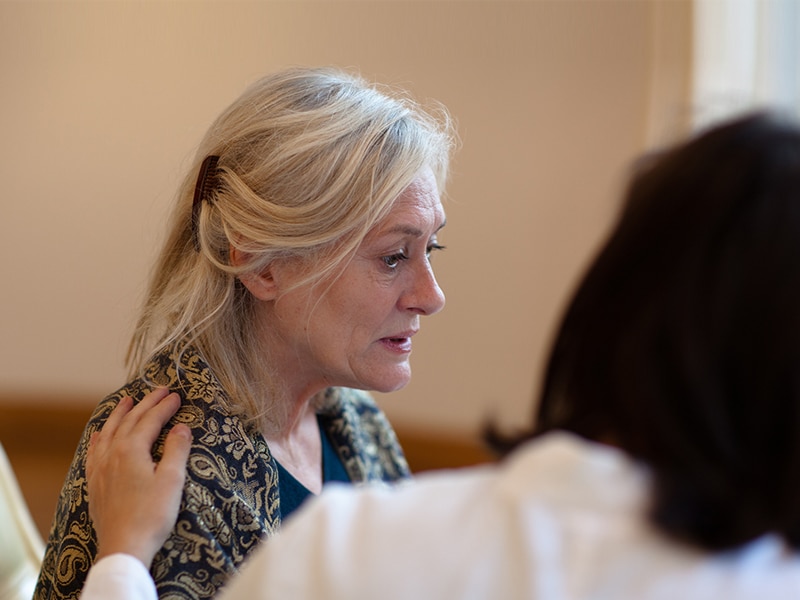Adults 60 and older may have better memory and cognition if they take daily multivitamins, according to a recent study that made headlines this year.
But aging patients who want to stay sharp should spend less time in the pharmacy and more time exercising, socializing, and eating right, say experts like Mariah Burnell, DO, family medicine physician on the medical staff at Methodist Southlake Medical Center.
“I do think supplements can provide some benefits, but to say they can prevent delayed cognition is probably an overreach,” Dr. Burnell says. “There’s just too little information to say definitively.”
The research was part of a larger clinical trial involving more than 21,000 people that examines the effectiveness of multivitamins in warding off age-related diseases in older adults. Scientists assessed a subset of 573 participants who completed a series of in-person cognitive tests. They found that those who were given a daily supplement did better than those who received a placebo.
“There have also been studies in the past that show no effect on memory,” Dr. Burnell says, “so I wouldn’t hang my hat on this data alone, especially given the small sample size.”
So before you make a beeline for the pharmacy, here are a few things to consider from Dr. Burnell.

FOOD, NOT FADS
Although it’s tempting to believe that taking a couple of pills each day will solve our health problems, supplements have limited uses. Your doctor might recommend a few if your diet is missing key nutrients, but there’s only so much your body can absorb.
“Sometimes I end up telling patients that by taking a lot of different supplements and multivitamins, you’re essentially creating very expensive urine,” Dr. Burnell says. “Your body is not absorbing every single thing, so it’s filtered out.”
Overloading your system with vitamins will only create more work for your body in the long run. Instead, it may pay off more if patients turned to their plates, she says.
“In general, taking a daily multivitamin isn’t necessarily a bad thing. But the same brain-boosting nutrients can be found in food,” Dr. Burnell explains.
Nutritionists often recommend green, leafy vegetables like kale and spinach — good sources of vitamin K — for healthy brain function. Foods rich in omega-3 fatty acids like salmon, walnuts, and avocado are also said to support learning, memory, and cognitive well-being. That’s why the Mediterranean diet is commonly touted by dietitians.
“I think the bigger issue with multivitamins is the way these pills are marketed. They can’t replace healthy habits like regular exercise and a well-balanced diet,” Dr. Burnell says.

TALK TO A DOCTOR
There are several reasons to consult your primary care physician before taking supplements. It’s especially important for those who are on other medications.
For example, the U.S. Food and Drug Administration warns Americans who use warfarin — a blood-thinning prescription drug — against taking ginkgo products and vitamin E because they heighten the risk of internal bleeding or stroke. Another herbal remedy, St. John’s wort, is known to dampen the effects of drugs taken for HIV/AIDS, heart disease, depression, organ transplants, and birth control.
Elderly patients may also benefit from a doctor’s visit because it could also reveal an underlying infection at the root of the problem, Dr. Burnell says.
“Any kind of dementia or even mild cognitive impairment happens gradually. Nothing happens overnight,” she explains. “But if a caregiver or family member notices any drastic cognitive change in a short period, then that healthcare conversation looks a lot different. At that point, it’s more likely to be delirium, which is sometimes caused by infections like a urinary tract infection or pneumonia.”

TRAIN YOUR BRAIN
Fortunately for older adults who can’t take multivitamins, there are other ways to try to keep sharp. On top of eating the right foods and getting a good night’s rest, Dr. Burnell suggests socializing with others or trying activities that stimulate the brain — things that Harvard University experts say can strengthen neural links and engage mental processes.
“It’s good to stimulate the brain, so that means conversing with friends and playing games or puzzles that require some sort of mental acuity like sudoku or crosswords,” she says. “It’s like the old saying, ‘Use it or lose it.'”
Ultimately, taking a daily multivitamin is most likely harmless, Dr. Burnell adds. But it’s not likely to be a silver bullet, either. You should always speak to your doctor before starting any new supplements.
“It’s just one part of a bigger conversation,” she says.






